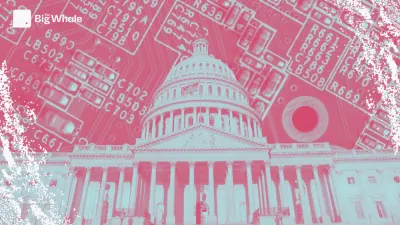Bitcoin est-il de droite ou de gauche ?

S’il est vrai qu’une partie de ses supporters se retrouve dans le libertarisme, il réunit toutes les sensibilités.
On entend partout que Bitcoin est lié à une idéologie libertarienne, voire anarcho-capitaliste, où l’individu est roi. S’il est vrai qu’une partie de ses supporters se retrouve dans cette vision, ce n’est pas le cas de tous. Loin de là ! Alors, Bitcoin est-il de droite ou de gauche ? Vaste question. Pour tenter d'y répondre, il faut revenir aux origines de cet ovni monétaire et politique.
Le créateur de Bitcoin (avec un B majuscule pour le protocole et un b minuscule pour la cryptomonnaie), Satoshi Nakamoto, est un “cypherpunk” revendiqué. C’est sur une mailing-list (la Cryptography Mailing List) réunissant les adeptes de ce groupe informel que le concept a été présenté pour la première fois en 2008.
Qui sont les cypherpunks ? Des personnes, le plus souvent des programmeurs informatiques, qui estiment que dans l’ère numérique où nous vivons, le droit à une vie privée est essentiel au sein d’une société libre et ouverte. Ces militants de la liberté numérique s’appuient sur une utilisation pro-active de la cryptographie pour protéger la vie privée.
Dans son “Cypherpunk’s Manifesto” (1993) l’Américain Eric Hughes écrit que “nous ne pouvons pas attendre des gouvernements, des entreprises ou des organisations sans visage de nous accorder le droit à la vie privée du fait de leur simple bienveillance. Il est dans leur intérêt de communiquer des informations à propos de nous, et nous devons nous attendre à ce qu’ils le fassent. (...) Nous, les cypherpunks, sommes voués à l’édification de systèmes anonymes. Nous défendons notre droit à la vie privée avec la cryptographie, des systèmes de messagerie anonyme, des signatures numériques et de l’argent électronique”.
Eric Hughes ne se présente pas comme un adversaire résolu de l’État. Il appelle néanmoins à lutter contre les lois limitant l’usage de la cryptographie. Plus généralement, les cypherpunks sont méfiants à l’égard de l’État et de ses lois car, selon eux, l’État (mais aussi les entreprises) ne pourraient pas s’empêcher d'utiliser les outils numériques pour surveiller la population. Il faudrait donc des instruments pour se protéger, au premier rang desquels une… monnaie pour continuer d’échanger quel que soit le régime politique. Bitcoin n’est pas la première idée de monnaie liée à ce courant de pensée.
Avant lui, B-Money (1998) et BitGold (1998), conçus respectivement par les cryptographes américains Wei Dai et Nick Szabo, ont ouvert la voie. Mais c’est Bitcoin qui a réussi à percer. C’est un système décentralisé, fonctionnant en pair-à-pair, autrement dit permettant de se passer, selon ses défenseurs, des intermédiaires comme les États et les banques. De quoi plaire aux libéraux les plus zélés… comme aux sensibilités de gauche qui critiquent le comportement de la “finance folle”, notamment depuis la crise des subprimes. Bitcoin avait d’ailleurs eu de l’écho en 2011 auprès du mouvement Occupy Wall Street. Et dans la première transaction de l’histoire du Bitcoin, en 2009, Satoshi Nakamoto avait fait référence au renflouement des banques britanniques par les fonds publics.
Remplacer l’État… ou venir en aide aux exclus du système financier
Le fait que Bitcoin soit décentralisé lui a très vite attiré les faveurs de ceux qui sont pour moins d’État, comme l’ancien conseiller de Donald Trump, Steve Bannon. “Les cryptomonnaies ont un grand avenir, elles pourraient jouer un rôle très important à l’avenir, en particulier dans le cadre d’une révolte populiste mondiale”, déclarait-il en 2019. Des soutiens qui ont donné une coloration de “droite” au Bitcoin. Mais on remarque que de nombreuses personnalités classées à gauche (dans le sens progressiste) s’en sont aussi emparées comme Sam Bankman-Fried, le patron de la plateforme d’échange FTX, qui a été le plus gros donateur de la campagne du démocrate Joe Biden. Et celui-ci a récemment indiqué qu’il était prêt à verser jusqu’à milliard de dollars pour faire battre Donald Trump si celui-ci se représentait en 2024.
On assiste actuellement à un changement à Washington, où de nombreux jeunes élus progressistes mènent désormais un combat pour repousser les projets de réglementation qui pourraient étouffer l’industrie. Il y a également le nouveau maire démocrate de New York, Eric Adams, qui s’était engagé en début d’année à recevoir ses premiers salaires en bitcoins. En France, l’ex-député Pierre Person avait déclaré dans The Big Whale qu’une vingtaine de parlementaires détenaient des crypto-actifs.
Plus fondamentalement, le Bitcoin offre de nombreuses perspectives dans lesquelles la gauche peut aussi se retrouver : inclusion financière, système financier plus transparent, propriété des données… Ce qu’il faut retenir, c’est que Bitcoin est profondément apolitique. Il est une monnaie publique, pas dans le sens où l’État exerce son influence dessus, mais dans celui où tout le monde peut s’en emparer et construire dessus. Les partisans de la gauche, comme de la droite.
Avant d’investir dans un produit, l’investisseur doit comprendre entièrement les risques et consulter ses propres conseillers juridiques, fiscaux, financiers et comptables.





